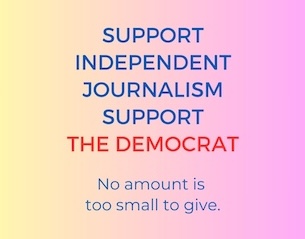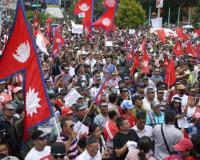- World
- Kyoto Crime Congress opens with declaration to tackle growing crime threats, promote inclusive COVID...
Kyoto Crime Congress opens with declaration to tackle growing crime threats, promote inclusive COVID-19 recovery |
“Crime prevention, criminal justice and the rule of law have a key role in renewing the social contract between states and their populations,” UN Secretary-General António Guterres said in his address, delivered live from New York. Highlighting the importance of the 14th UN Congress on Crime Prevention and Criminal Justice in tackling challenges arising from

“Crime prevention, criminal justice and the rule of law have a key role in renewing the social contract between states and their populations,” UN Secretary-General António Guterres said in his address, delivered live from New York.
Highlighting the importance of the 14th UN Congress on Crime Prevention and Criminal Justice in tackling challenges arising from the global pandemic, the UN chief said the forum’s agenda this year targets the responses needed to strengthen crime prevention and criminal justice in the current crisis.
These included comprehensive crime prevention strategies to underpin social and economic development; integrated responses to shore up criminal justice systems, and revitalized international cooperation and technical assistance to prevent and address all forms of crime.
Crime and the coronavirus
Mr. Guterres stressed that the disruption caused by ongoing coronavirus pandemic was presenting criminals with new opportunities to exploit the marginalized and at risk.
“We face profound choices. Recovery from the COVID-19 pandemic presents an opportunity to address the grave injustices and inequalities that have plagued societies for generations,” he said.
Japanese Prime Minister Yoshihide Suga said that a “safe and secure” society is a precondition for achieving social and economic recovery.
“The international community need to work together to strengthen efforts in crime prevention and ensure a criminal justice system that is fully functional even amidst the COVID-19 crisis,” he stressed, adding that Japan valued multilateralism and was determined to demonstrate its strong leadership in building a post-COVID-19 international order.
The Congress opening also featured statements from Her Imperial Highness Princess Takamado, Justice Minister Yoko Kamikawa and Prosecutor-General Makoto Hayashi, as well as from the President of the UN General Assembly Volkan Bozkir, the President of the Economic and Social Council (ECOSOC), Munir Akram and the Executive Director of the UN Office on Drugs and Crime (UNODC), Ghada Waly.
Mr. Bozkir, in a pre-recorded statement, said: “Make no mistake. We will not achieve the targets of the 2030 Agenda for Sustainable Development if we do not take action on the rule of law, crime prevention and criminal justice.”
The track to 2030 is already more difficult as the world contends with the socio-economic consequences of the COVID-19 pandemic, he explained, adding: “We cannot allow crime, to derail us further. In this Decade of Action, we need to improve governance, strengthen the rule of law, and promote effective and accountable institutions of criminal justice.”
In his pre-recorded remarks, Mr. Akram said: “There is a compelling case for enhanced international action to combat and dismantle networks and platforms that perpetrate these crimes and undermine progress towards 2030 Agenda.”
As such, he hoped the Kyoto Congress could prioritize certain key issues: the bleeding of the resources of developing countries through illicit financial flows; environmental crimes and ever-growing illegal trade in wildlife; changes in labour and migration laws to cut demand for the services of human traffickers; and effective action against falsified and fake medical products, such as COVID-19 vaccines.
Crime Congress 101
Organized with the support of UNODC, the Crime Congressrepresents the world’s largest gathering of governments, international and regional organizations, civil society, experts and scholars focusing on crime prevention and criminal justice.











